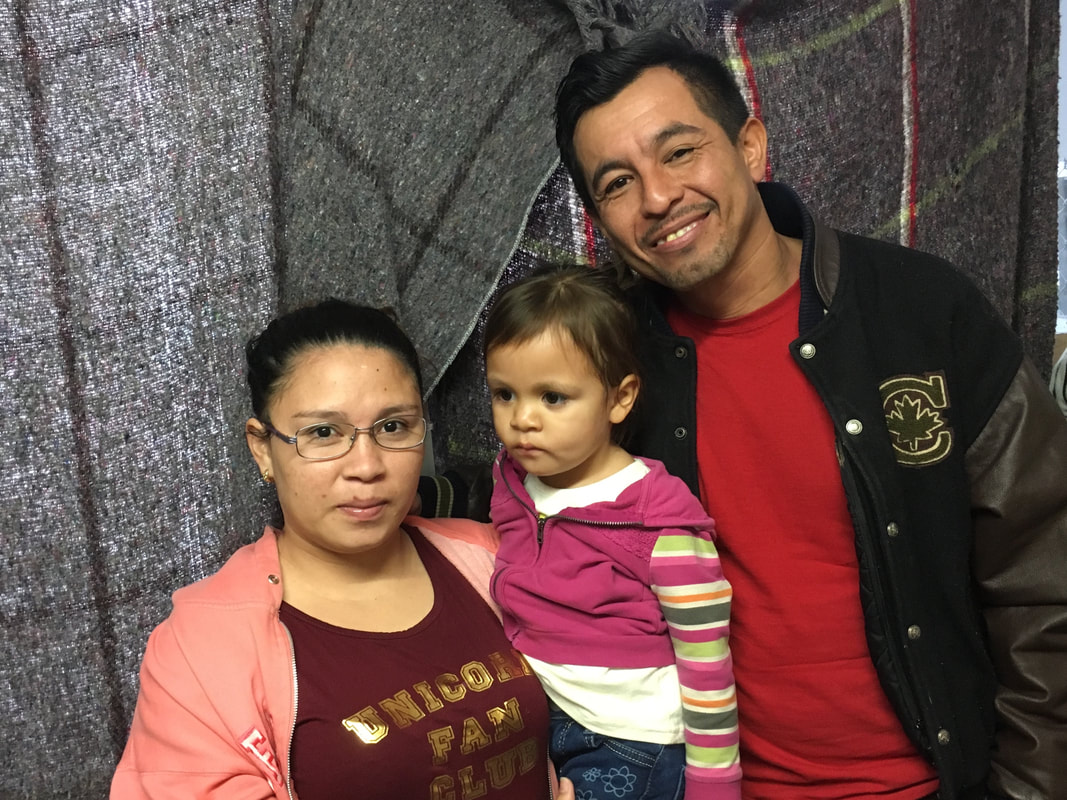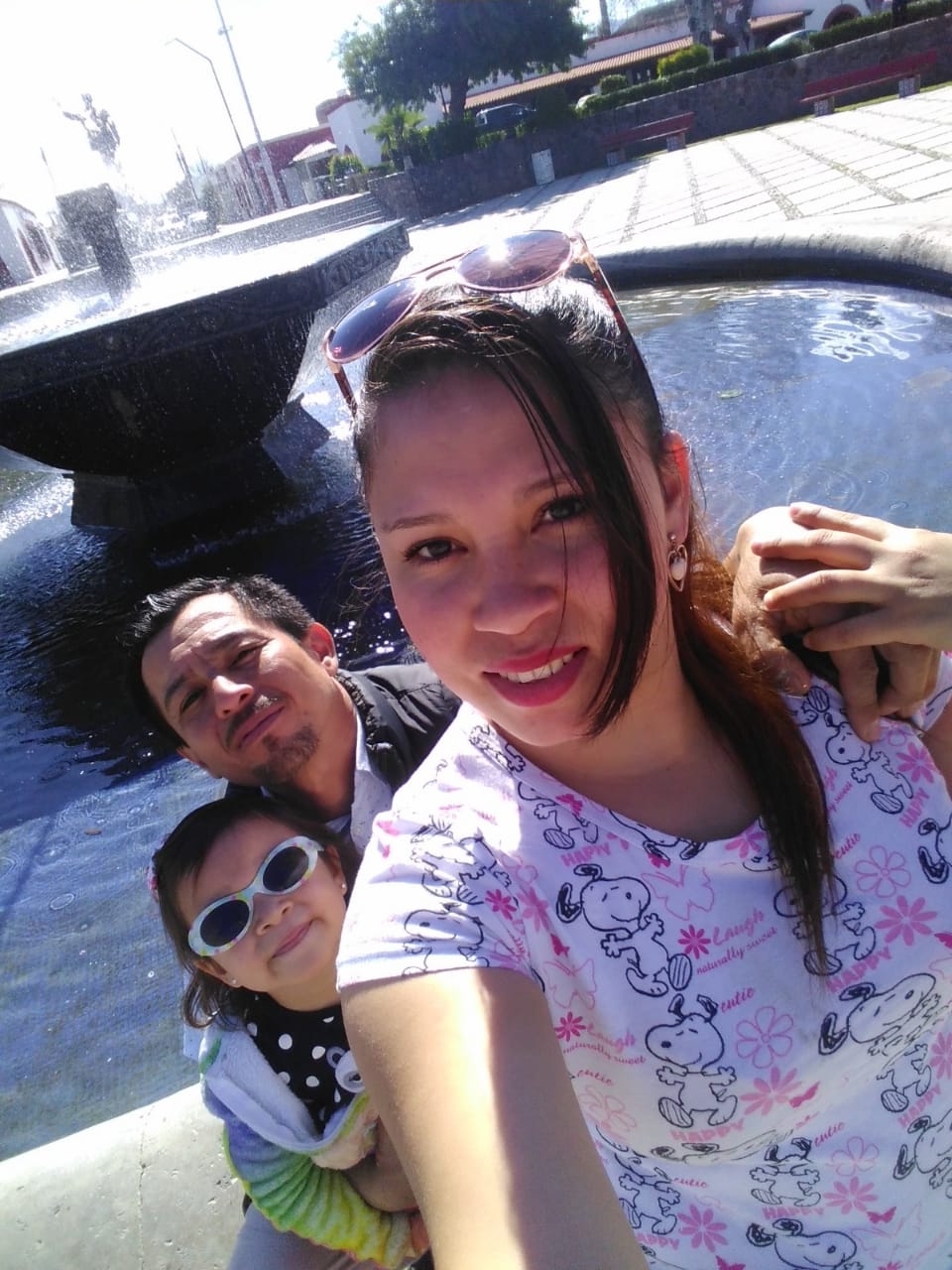I also went across the border twice with Shura, a volunteer with the Samaritans, a group of Arizona retirees who put water and other supplies along well-traveled routes in the desert, hoping migrants will find them. Shura may be the most popular person in Nogales, Mexico, where almost everyone we saw on the street seemed to know and love her.
On the last day of my trip, in a tiny room on the Mexican side of the border crossing, with nothing separating it from the mean streets but a blanket over the door opening, I met Nelson Paredes and his wife and young daughter (pictured above, that day, and below, recently). He was full of hope and optimism as their number was soon to be called for their “credible fear” hearing to see if they could enter the U.S. legally and apply for asylum. He was confident that his story of threats and terrorism from the cartels in his home country would do the trick. He was looking forward to a better life and to contributing to his new country.
I was so taken with his optimism and can-do attitude that I asked if I could contact him when he arrived on the U.S. side to see what the experience was like. He cheerfully gave me the phone number of his cousin in Phoenix, where he expected to be heading.
When I called him a few weeks later, I learned that his wife, Brenda, and daughter, Emily, had passed their credible fear hearing, but that Nelson was detained and sent to an immigration prison near Phoenix. Brenda said officers didn’t believe Nelson’s story “because it was so common.” Apparently they let her in because she was with her daughter.
I had several phone calls with Brenda and tried to get information on Nelson, but besides his detention number, I couldn’t find out anything. After a few weeks his number disappeared from the data base and her phone stopped working. I could only assume they had been deported. I felt terrible that I hadn’t been able to help them.
Ten months later, he called from Nogales, Mexico. The Mexican government has allowed Central American migrants to settle legally in the country and work, if they can find work. Nelson told me they have a tiny apartment, but haven’t been able to work consistently, even though he has construction experience and actually ran his own business in El Salvador. “I think Mexicans don’t like immigrants, either,” he told me.
Yet he was still his same upbeat, positive self. And even though last year he seemed very afraid of leaving that tiny shelter for the crime-ridden streets outside, on the phone call he didn’t mention fear or crime. He said Emily, who’s 5, will be starting school soon. After the call he sent me this email:
“Hi…melinda. God bless you. Well this is nelson after been in jail and had deported….we live in mexico here in Nogales where we meet us for first time. Right now i dont have a job but God allways good with us…my daugther will start the school next september ….like i said by phone we have small room where we live and a few furnitures …we just start a new life…..mexico has been good with us….we have the Resident statutus and waiting to see if we can apply for citizen ship…… God bless your life……say hi to. Shura. And the other ladys that know about our lifes…..Brenda say hi….and. Emily. God bless you. A lot”
Immigration is as much a fundamental a part of what makes us U.S. Americans as was enslavement of Africans and genocide against the indigenous first peoples. But it’s the good part. I’m glad my friends are safe and together, but I’m sad that they’ll be making their contributions to a different society, not ours.


 RSS Feed
RSS Feed
